Hand me my gun, let the bugle blow loud
I’m on my way with my head up proud
One objective I’ve got in view
Is to keep ahold of freedom for me and you
That’s why I’m marching, yes, I’m marching
Marching down Freedom’s Road
Ain’t nobody gonna stop me, nobody gonna keep me
From marching down Freedom’s Road
It ought to be plain as the nose on your face
There’s room in this land for every race
Some folks think that freedom just ain’t right
Those are the very people I want to fight . . .
United we stand, divided we fall
Let’s make this land safe for one and all
I’ve got a message and you know it’s right
Black and white together, unite and fight!
I’m on my way with my head up proud
One objective I’ve got in view
Is to keep ahold of freedom for me and you
That’s why I’m marching, yes, I’m marching
Marching down Freedom’s Road
Ain’t nobody gonna stop me, nobody gonna keep me
From marching down Freedom’s Road
It ought to be plain as the nose on your face
There’s room in this land for every race
Some folks think that freedom just ain’t right
Those are the very people I want to fight . . .
United we stand, divided we fall
Let’s make this land safe for one and all
I’ve got a message and you know it’s right
Black and white together, unite and fight!
inviata da Bernart Bartleby - 13/5/2014 - 10:20
×
![]()

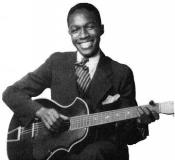
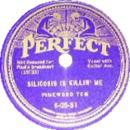

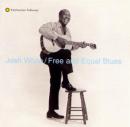

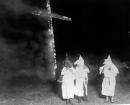

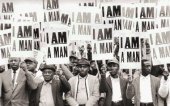
Versi del grande poeta afroamericano Langston Hughes.
Musica di Emerson Harper.
Registrata da Josh White (chitarra e voce) nel 1944.
Trovo il brano in un paio di collezioni: “That's Why We're Marching: World War II and the American Folksong Movement” (Smithsonian Folkways Records, 1996) e “Songs For Political Action - Folk Music And The American Left 1926 – 1953” (Bear Family Records, sempre del 1996)
Se per i bianchi di sinistra, come Guthrie e Seeger, la guerra in Europa era una battaglia anti-fascista, una nuova Internazionale e “cantare canzoni di guerra non era poi diverso da cantare canzoni di lavoro”, per gli afroamericani come Josh White (anche lui, non a caso, collaborò strettamente con gli Almanac Singers) la guerra era pure un’occasione per ribadire che se la lotta è comune allora tutti sono uguali, bianchi e neri… “United we stand, divided we fall” sancisce anche la necessità della fine delle “Jim Crow Laws” e del segregazionismo. E in questo senso la seconda guerra mondiale costituirà un punto di svolta, perché è in quegli anni che prenderà avvio il movimento per i diritti civili - a partire dall’immagine del nero Jesse Owens, vincitore di quattro medaglie d’oro ai giochi olimpici di Berlino del 1936 - con la fondazione nel 1942 del Congress of Racial Equality (CORE), l’ammutinamento degli ufficiali di colore del Freeman Army Airfield di Seymour del 1945 ed il successivo decreto di Truman per la desegregazione nelle forze armate.